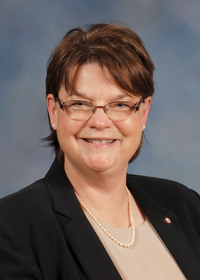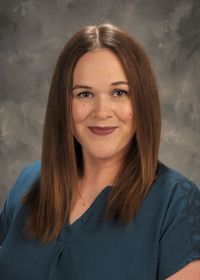Information Possibly Outdated
The information presented on this page was originally released on January 24, 2008. It may not be outdated, but please search our site for more current information. If you plan to quote or reference this information in a publication, please check with the Extension specialist or author before proceeding.
Consider dietary issues at wedding reception
By Patti Drapala
MSU Ag Communications
MISSISSIPPI STATE -- Eating at a wedding is a daunting step for people with dietary restrictions, but a little pre-planning by the guests and the bride can get everyone through the reception with health intact.
Many individuals with diabetes, kidney disease, heart failure or other digestive issues have to be careful about what they eat. The availability of recommended food at social events, such as weddings, is difficult to predict, said Brent Fountain, human nutrition specialist with the Mississippi State University Extension Service.
“Unfortunately, the bride cannot plan for every possibility,” he said. “Individuals with special health concerns should take steps to make sure they are taking care of their health.”
Diabetes is particularly tricky for guests wanting to make healthy food choices. Wedding cake and punch usually contain extremely high amounts of sugar, which can raise blood glucose levels higher than needed for diabetics.
“If you have diabetes and are concerned about what you can do to minimize the effect of high-carbohydrate foods on blood sugar, keep your schedule of careful eating, medications and physical activity as normal as possible,” Fountain said.
One trick is to use a smaller plate, be choosy and take smaller portions of food. Look for fresh fruit and vegetable trays, protein or vegetable-based finger sandwiches, and toasted nuts with minimal salt. Ask a server if diet soft drinks, sugar-free lemonade, unsweetened tea or coffee is available.
Fresh fruit and raw vegetables have the additional bonus of taking longer to break down because of fiber content, said Nicky Yeatman, a registered dietitian and certified diabetes educator at Oktibbeha County Hospital. Foods that are refined and highly processed often contain more carbohydrates, are quickly broken down into glucose and rapidly go into the bloodstream.
She said another strategy that diabetics can use to lessen the chance of experiencing a high or low blood sugar is to eat their regularly scheduled snack before leaving for the wedding. Feeling satisfied makes the individual less likely to be hungry and overeat to compensate.
“Don't feel that you must sample everything at a reception just to please your host,” Yeatman said.
People with diabetes should not feel pressure to ignore their meal plan and eat more food than they need, Fountain said.
“Take a small bite for hospitality's sake, if you want, or simply decline,” he said. “Never feel guilty about protecting your health.”
The bride can help this situation by working with her caterer to offer a variety of food choices within the wedding budget. Professional caterers can suggest low-sugar, low-calorie or low-fat alternatives that look like and taste like the high calorie originals.
The bride also can ask guests to relay any dietary restrictions with the RVSP on invitations, should she choose to do so.
The thoughtfulness of the bride shows her to be a considerate and savvy individual, Fountain said.
“Although the bride has much responsibility resting on her shoulders, her guests will appreciate her for taking time to think about their needs,” he said. “This consideration creates much goodwill flowing throughout the room.”






